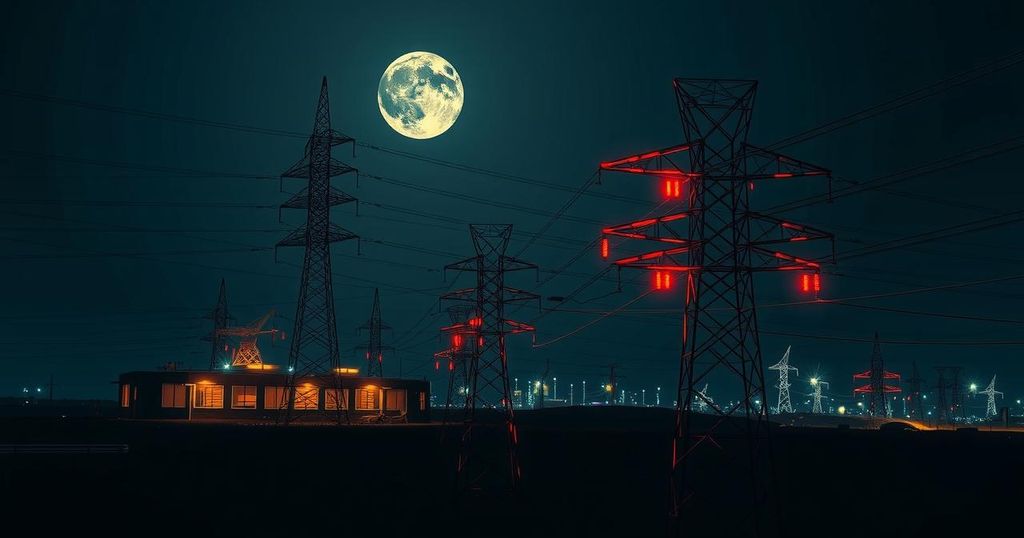The article discusses recent storm-induced power outages affecting 3 million residents in São Paulo and highlights the urgent need for regulatory changes to improve grid resilience amid extreme weather. It emphasizes ongoing discussions within the electric sector regarding adaptation to increased storm frequency while also addressing historical drought conditions in Brazil. Regulatory bodies and utility companies are urged to invest in stronger infrastructure to ensure energy supply continuity.
The recent storm that struck São Paulo and caused widespread power outages for approximately 3 million residents has intensified calls for regulatory reforms focused on enhancing the resilience of the electrical distribution networks amid increasingly extreme climatic conditions. This discourse has been prevalent within the electric sector for several years; however, it has gained significant traction following the occurrence of two severe storms within a year, which undermined the operations of Enel São Paulo, a power utility servicing 24 municipalities including the capital. In November 2023, inclement weather, characterized by heavy rainfall and winds, resulted in the collapse of around 1,300 trees on power lines, contributing to a network disruption that was repeated in the recent storm, which featured winds reaching 107 kilometers per hour (km/h). Following these events, scrutiny has been directed at Enel São Paulo, the municipal government, and various public entities regarding their accountability in ensuring energy supply continuity. Notably, this investigation into infrastructure reliability has been exacerbated by the apparent uptick in the frequency of extreme weather occurrences impacting Brazil. Earlier this year, Rio Grande do Sul was subjected to one of its most catastrophic storms in recorded history. Furthermore, in 2023, other regions, including the capital of São Paulo and coastal municipalities such as Ubatuba and São Sebastião, also sustained severe storm damage, leading to fatalities. Conversely, Brazil is concurrently confronted by a historic drought, complicating the climate narrative. As noted by Regina Célia dos Santos Alvalá, director of the National Center for Monitoring and Early Warning of Natural Disasters (CEMADEN), it is imperative for all sectors vulnerable to weather instability, in addition to the electricity sector, to prepare for new climate realities: “Today’s climate is not the same as the climate of the past.” This ongoing dialogue has critical implications, as distribution companies are tasked with forecasting and executing capital investments, which are factored into the energy tariffs set forth by the Brazilian Electricity Regulatory Agency (ANEEL). Investments deemed “imprudent” do not influence tariffs, thus incentivizing companies to pursue regulatory support for necessary upgrades. The importance of strengthening grid resilience has been underscored by ANEEL, which has recently initiated a public consultation to review regulations guiding the renewal of operational concessions for various distribution enterprises set to expire after 2025. This initiative encourages enhanced reliability measures and supply quality commitments from the companies. Bruna de Barros Correia, an energy attorney at BMA Advogados, highlighted a pivotal shift in sector focus from merely seeking to mitigate greenhouse gas emissions toward adapting electrical systems to withstand extreme climatic events such as severe droughts and storms. She emphasized that each concession must tailor its response to its unique challenges. In a recent press conference, Enel São Paulo’s CEO, Guilherme Lencastre, emphasized the urgent need to update concession contracts to prioritize preventive investments against climate events, stating, “It was the largest wind gust event ever reported in São Paulo’s history. We did not have forecasts for winds of the intensity that happened on Friday.” The company plans to invest R$6.2 billion between 2024 and 2026, raising its annual expenditure on resilience initiatives. According to Ricardo Brandão, executive director of regulation at ABRADEE (the Brazilian Association of Electric Energy Distributors), the distributors have embarked on substantial investments toward fortifying grid infrastructure, allocating R$31 billion specifically for enhancing distribution reliability. He acknowledged the complexities surrounding energy restoration timelines, noting that technicians face challenges in rebuilding damaged networks. Investments in innovative technologies, such as “self-healing” systems to enable automatic reconnections after outages, form part of the companies’ modernization strategies to adapt to worsening weather patterns. Indeed, the conversation about energy resilience and response strategies is increasingly salient as climate-related disruptions become more pronounced in Brazil. This article has been adapted from Valor Econômico, ensuring accuracy, clarity, and adherence to editorial standards.
The background of this article involves the increasing frequency of extreme weather events affecting Brazil’s power infrastructure, particularly focusing on São Paulo, where severe storms have caused significant power outages. This situation has raised urgent discussions regarding the resilience of the electric distribution network and the necessity for regulatory changes that would ensure investments aimed at fortifying the grids against climatic adversities. Concerns have been amplified by contrasting occurrences of both severe drought and extreme storms, prompting experts to emphasize the need for an adaptive approach to energy management and infrastructure planning.
In conclusion, the recent storm events in São Paulo have underscored the pressing need for enhanced regulatory measures and investments to fortify the resilience of electrical distribution grids in response to extreme climate conditions. The established discourse highlights the essential role of power utility companies in ensuring sustainable energy supply, while also addressing the challenges posed by recurring severe weather events. As stakeholders seek to adapt to this evolving climate reality, it becomes increasingly vital to prioritize comprehensive infrastructure planning that accounts for both the frequency and intensity of these climatic phenomena.
Original Source: valorinternational.globo.com






